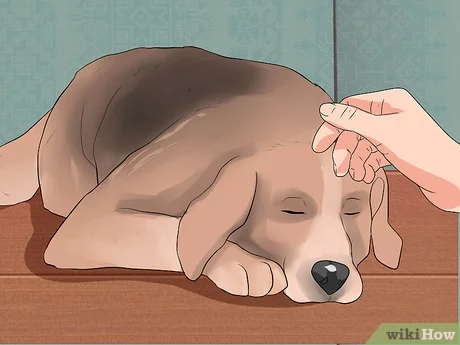Are Seeds Bad For Dogs
Seeds are often considered as a healthy snack for humans, but can dogs enjoy the same benefits? Pet owners have been debating whether seeds are bad for dogs or not. While some argue that seeds are great for dogs, others believe that they can cause harm to our furry friends. In this article, we will explore the truth about seeds and their impact on canine health.
Understanding Seeds
Seeds are tiny packages of nutrients that contain essential vitamins, minerals, and fiber. They come in various forms such as nuts, grains, legumes, and fruits. Seeds are a popular ingredient in many human foods like bread, cereals, salads, and snacks.
When it comes to feeding seeds to dogs, things get a bit complicated. Some types of seeds are safe for dogs, while others can be toxic. The danger lies in the chemical compounds present in certain seeds that can cause digestive issues, choking hazards or even poisoning.
Are Seeds Bad for Dogs?
The answer is not straightforward. It depends on the type of seed and how it is prepared. Here is a detailed breakdown of different types of seeds:
1) Pumpkin Seeds
Pumpkin seeds are a popular source of protein and fiber for both humans and dogs. They contain healthy fats like omega-3 fatty acids that promote heart health and shiny coat in dogs. Pumpkin seeds also have anti-inflammatory properties that can benefit dogs with arthritis or joint pain.
However, pet owners should avoid feeding raw pumpkin seeds to their dogs as they may cause gastrointestinal upset or constipation. Roasted or cooked pumpkin seeds without added salt or spices are safe for dogs to consume in moderation.
2) Sunflower Seeds
Sunflower seeds are rich in vitamin E, an antioxidant that helps boost immune function and skin health in dogs. They also contain linoleic acid, which supports healthy brain development and cognitive function.
However, sunflower seed shells can pose a choking hazard to dogs if ingested whole. They can also cause digestive issues if consumed in large quantities. Pet owners should remove the shells and feed only the seeds in moderation.
3) Flaxseeds
Flaxseeds are an excellent source of fiber and omega-3 fatty acids, which can help regulate bowel movements and reduce inflammation in dogs. They also contain lignans, a type of phytoestrogen that has anti-cancer properties.
However, flaxseeds must be ground or crushed before feeding to dogs as their hard outer shell is indigestible. Whole flaxseeds can cause vomiting or diarrhea in dogs. It’s best to sprinkle a small amount of ground flaxseed on your dog’s food rather than feeding it as a standalone snack.
4) Sesame Seeds
Sesame seeds are packed with essential minerals like calcium, iron, and magnesium that support bone health and muscle function in dogs. They also contain antioxidants that protect against cell damage and aging.
However, sesame seeds are high in fat content that can lead to weight gain or pancreatitis in dogs if consumed excessively. Pet owners should limit the amount of sesame seeds fed to their dogs.
5) Chia Seeds
Chia seeds are loaded with fiber and protein that aid digestion and promote satiety in dogs. They also contain omega-3 fatty acids that improve skin health and reduce inflammation.
However, chia seeds can absorb water and expand in the stomach, causing bloating or constipation in dogs if not soaked or ground before feeding. It’s best to mix chia seeds with water or sprinkle them on top of wet food for easy digestion.
Conclusion
In conclusion, not all seeds are bad for dogs. Some types of seeds like pumpkin, sunflower, flaxseed, sesame, and chia offer numerous health benefits when fed in moderation. However, pet owners must be cautious about the type of seed they feed their furry friends as some seeds can be toxic or cause digestive issues. Always consult with a veterinarian before introducing new foods to your dog’s diet.
Remember, seeds should not be the primary source of nutrition for dogs. They should only serve as occasional treats or supplements to well-balanced meals. As always, moderation is key. So go ahead, have fun experimenting with different types of seed snacks for your furry friend, but make sure you do it responsibly!



